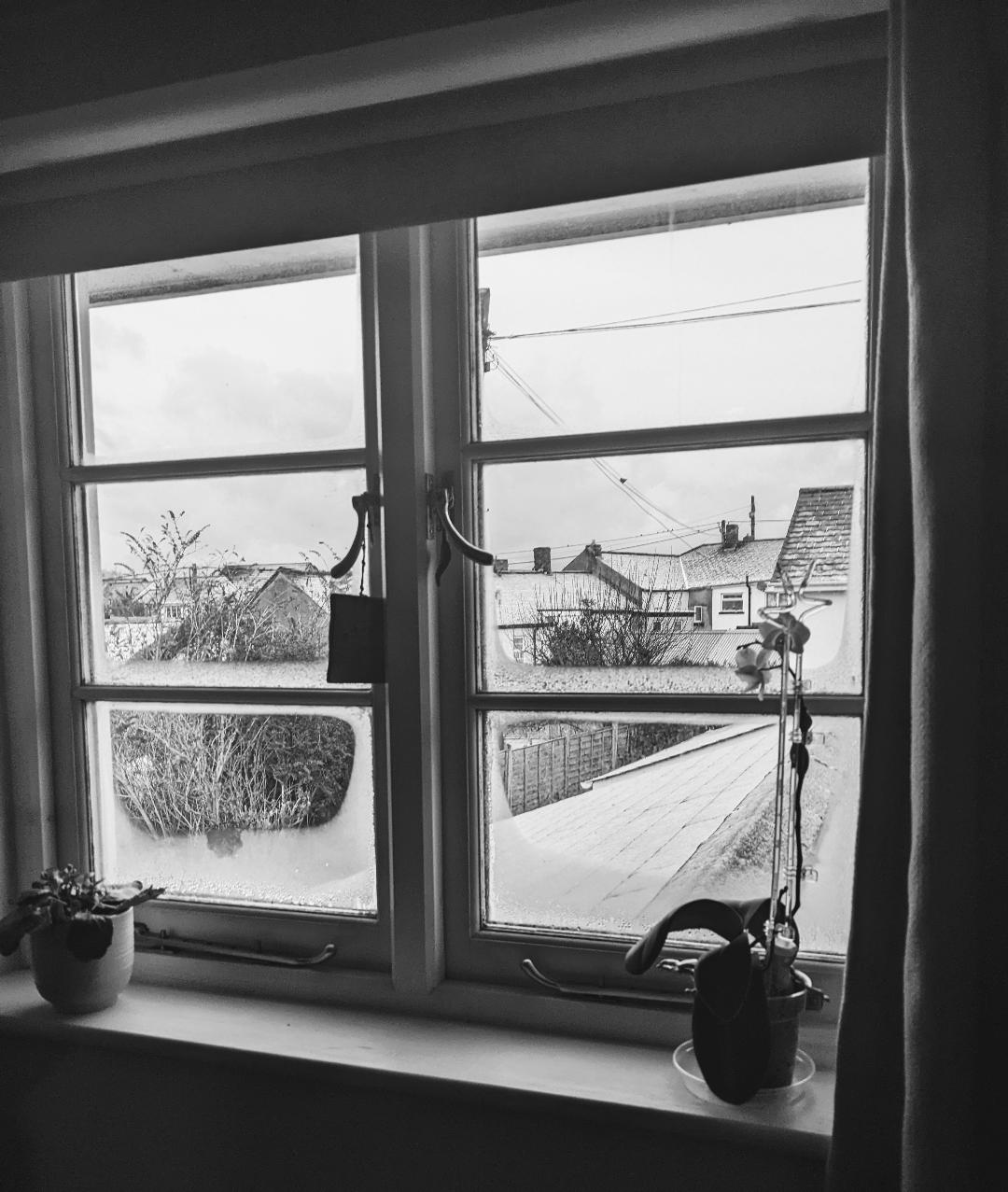Condensation on Wooden Windows

Condensation is a natural phenomenon that happens on all glass that you find within windows and doors. We all know that single glazing condensates. But double glazing and even triple glazing will still condensate. This is true regardless of what frames the glass is held within. Plastic, composite and aluminium all suffer the same fate as wooden windows. While it is impossible to completely eliminate condensation there are steps you can take to reduce it.
Why is there condensation on my windows?
Our homes are full of warm moist air. When this hits a cold surface, in this case glass, it condensates and turns into water droplets. You'll notice this more during the cold winter months. Low outside temperatures and your heated home add up to more condensation.
Is the condensation on my windows harmful?
No, condensation isn't strictly harmful. It's pretty ugly though. On single glazed windows, condensation can at times, literally stream over the face of the window and leave pudlles of water. The issue here is that condensation indicates a humid atmosphere. The consequence of the condensation and high humidity can create heath problems. If condensation is not appropriately cleaned mould can form. Also, excessive condensation found on single glazing can lead to premature rotting of timber windows.
Can I prevent or reduce condensation on my windows?
Yes! Although you will never eliminate condensation you can improve your situation. You'll need to control your humidity as much as possible. Here's some tips to help.
You need to ventilate your home more than you think. If you're at home, consider ventilating the house for 5 or so minutes a few times during the day, even if it's cold or raining outside. Don't make the mistake of just trying to air the dampest rooms in the house. If you do that, the humid air will just be blown back into the house.You're home needs to breathe!
If you have trickle vents, use them! My windows have trickle vents and they are fully open all year. Yes, even when it's freezing outside. Trickle vents are great because you can leave them open and there is no security risk, unlike a window being left open. If your home has other means of ventilation make sure they are working properly.
Use extraction. If you have an extractor hood in the kitchen make sure you use it as soon as you begin to cook. Leave your extractor running for at least 15 minutes after you finished cooking, even if it's at a reduced speed to clear the air. Keep those saucepan lids on while you cook, this saves energy too. The same goes for bathrooms. Make sure your extractor fans work properly. One issue I've noticed is that internal doors can sometimes fit so tightly that a bathroom fan can't draw enough air to work. You might need to consider trimming something from the bottom of the door that leads into your bathroom.
Dry your laundry outside. Of course this isn't always possible, especially during the winter. But by drying wet laundry inside you are going to make condensation much worse. If you have a tumble drier, make sure the air is vented to the outside of the building. We've even made windows with a hole in the double glazing so the vent pipe can pass through.
I tried that and it's not made much difference. What else can I try?
Pets. While we're not asking you to take your dog to the shelter or get rid of your tropical fish, you must understand that the more living things and moisture in the home the more condensation you'll get. Been on a walk with the dog and got wet? Can you dry the dog outside and not leave the towels to fester?
Plants. Who doesn't like house plants? Well, plants need watering, that water evaporates making the air more humid. Perhaps try living without so many plants?
Empty house syndrome. If you're not always at home or you've been on holiday and decided not to heat the home whilst you're away all of your furniture and carpets etc will have absorbed water. If you can, ventilate your home more than normal as you bring up to normal temperature.
I've tried everything but condensation is still a problem. What options do I have?
Try a window vac. Don't use a normal vacum cleaner. Look at something like the Karcher Window Vac. These specialist tools are very useful on single glazed windows where the problem is most acute during the winter months.
My bedroom, and bathroom windows condensate worse than other windows. Is this normal?
Yes! With what we've learned so far we should already have a bit of an idea why.
First bedrooms. It's not unusual for two people to sleep in the same room. At night the external temperature is low and while we sleep we exhale warm moist air. Over an 8 hour period this really adds up and the warm moist air readily condensates. It's also not unusual to have en-suite bathrooms. Damp towels and even the evaporation from your loo all add up to make a moist environment.
Bathrooms become supercharged with moist air and wherever possible an efficient extraction system should be used. As mentioned above, damp towels on heated towel rails and bath mats all contribute to a damp atmosphere.
Kitchens become very humid. Thankfully most kitchens have an extractor. However, even the extractor won't remove all the warm air. I'm sure you can visualise a big plume of steam rising up as you tip your pasta out to drain? That moisture is now in the air and just waiting to find the coldest part of the room or drift through into other areas of you home.
Conclusion.
While we or any other window maker can't promise to eliminate condensation it is possible to reduce condensation with more ventilation, a few tweaks to our lifestyle and where appropriate double glazing.
